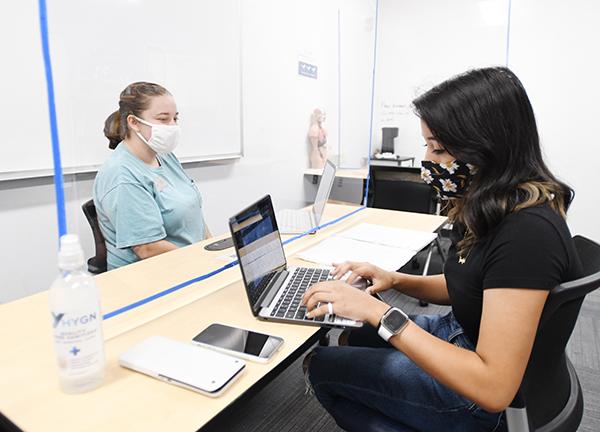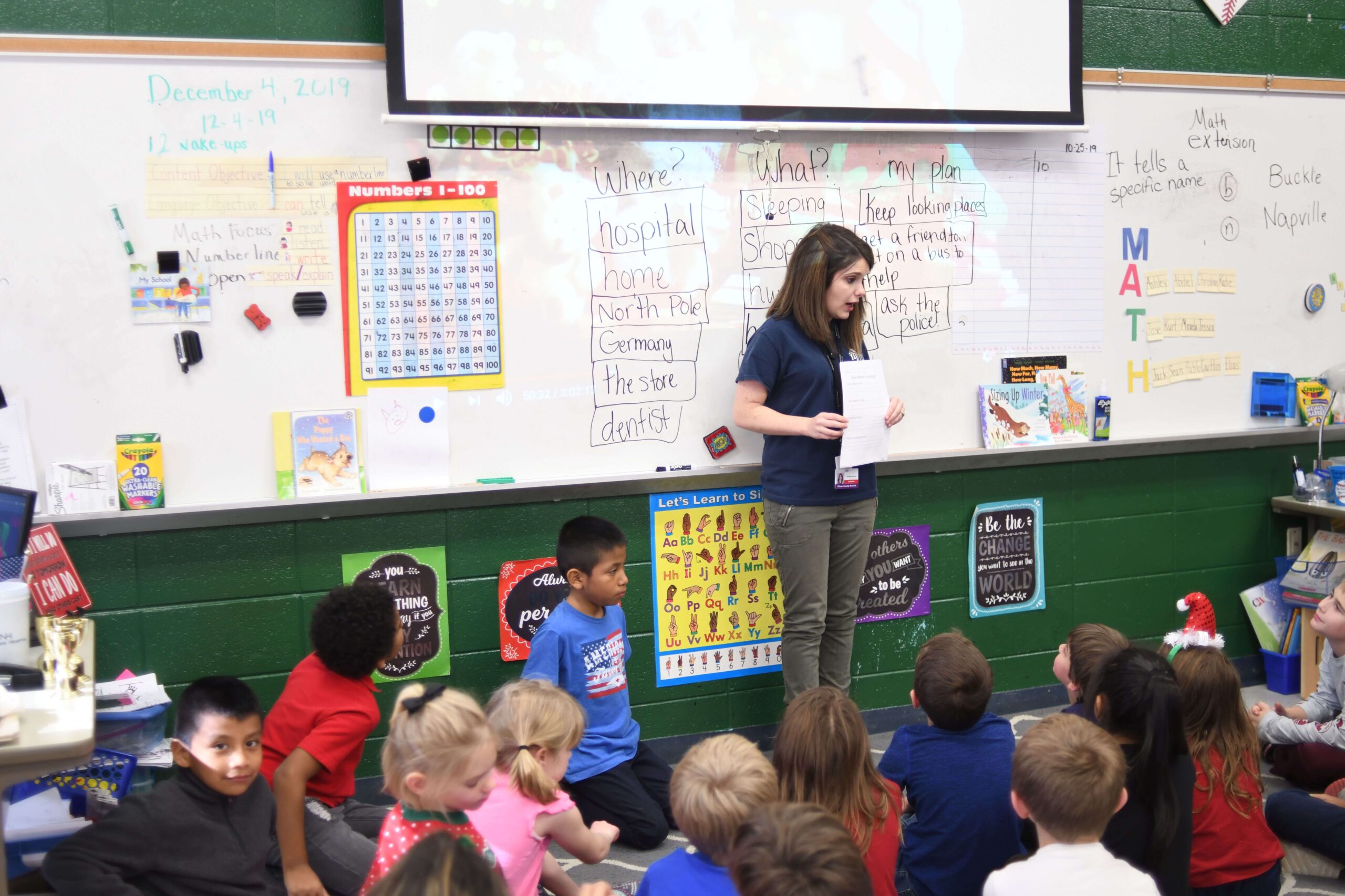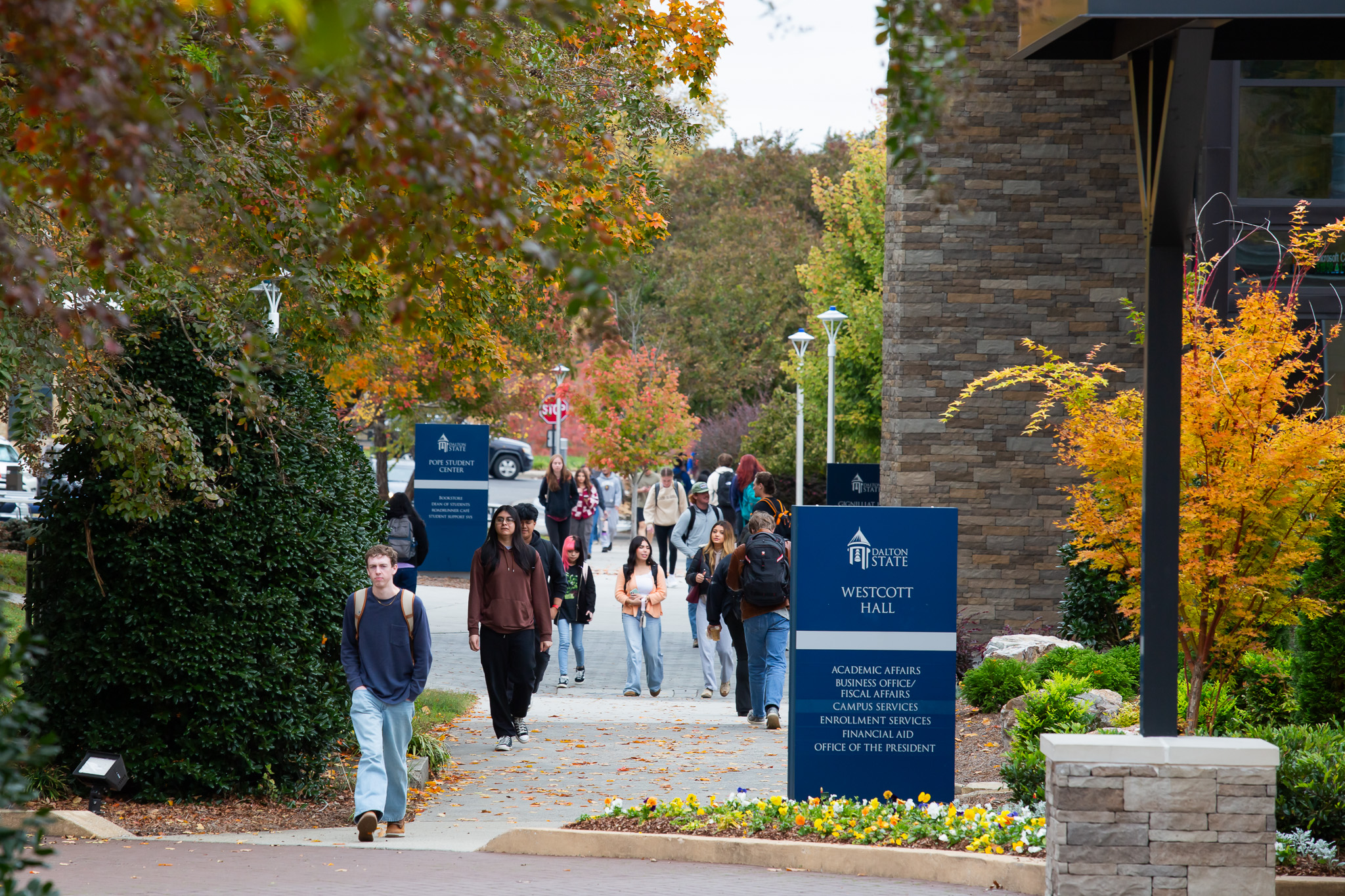During the pandemic virtual services became a necessity, and funds from a federal grant were used to deliver high quality tutoring to students remotely.
The grant funded upgrades including new software that allowed for virtual tutoring, mobile whiteboards that could be used anywhere on campus, multiple webcams, new iPads and 8StarG drawing tablets, human anatomy skeletons, models of human organs and molecules, test preparation materials and more.
“These upgrades allowed us to continue providing our students with the services they needed to succeed through the pandemic,” said Dr. Jodi Johnson, vice president for Student Affairs and Enrollment Management. “In addition to virtual tutoring, TutorOcean software gives us an easy way to schedule sessions. The 10 new mobile whiteboards were added as instructional aides to meet our students needs anywhere on campus. And the webcams were necessary not only to offer remote tutoring to students who were quarantined, but also to tutor students at our Mountain Campus in Ellijay more efficiently. The other items helped us better teach students with hands-on learning tools.”
In 2019, Dalton State received a $2.1 million Title V Developing Hispanic Serving Institutions (HSI) Program Grant because of the college’s status as an HSI, a federal designation given to institutions of higher education where at least 25% of the student population identifies as Hispanic.
This week is National HSI Week. The college received the designation in 2018, and now reports approximately 33% of the student population is Hispanic.
“Our status as an HSI is a reflection of the Northwest Georgia community,” said Dr. Margaret Venable, president of Dalton State. “Since this institution was founded, we have focused on serving the needs of our local community by contributing to an educated workforce. Being an HSI makes us eligible for grants, such as the Title V grant, that benefit all our students. We believe this diversity enriches our caring, safe learning environment we provide students.”
The Title V grant is set to expire in 2024.
“Our goals of the initiatives implemented through the grant are to establish a comprehensive advising program, expand tutoring and supplemental instruction and improve technology for student support,” Johnson said. “These initiatives will help us improve services to all our students, but especially underserved populations. Most of our students are first-generation college students and need that extra helping hand to achieve their full potential.”
The grant also paid for additional peer educators. Tutoring and Supplemental Instruction provided services for students approximately 10,000 times in the 2020-2021 academic year.
Other items supported through the grant include:
- Convey This, allowing the Dalton State website to be translated into five languages. This tool helps disseminate information to the local Spanish-speaking community as well as other nationalities to increase student support.
- Grammarly Premium, available campus wide at no additional cost to students. The program allows students to check spelling, grammar, tone, style and vocabulary, while serving as a plagiarism monitor. More than 2,300 students used Grammarly during the 2020-2021 academic year while there were more than 13,000 sessions.
- AdAstra Scheduling Software, used for improved scheduling, more effective utilization of space, tracking of student progression toward graduation and integrating advising, planning and completion to increase retention and graduation rates for all Dalton State students.
- Faculty and staff development, including participation in numerous virtual conferences and the certification of supplemental instructional leaders.
- The creation of the Financial Fitness Learning center, which opens this semester, where peer mentors will help students with financial literacy, budgeting, navigating student loans, living on your own for the first time, buying a car and eliminating debt. A recent survey of Dalton State students revealed 30% of students who fully withdrew from classes did so due to financial concerns. The survey also showed students would like to learn more about financial topics from peer mentors.
“We continue to use the grant funds to increase course completion and retention rates, increase the graduation rate, especially for underserved student populations, and provide students with exceptional educational experiences that lead to success,” Johnson said.





